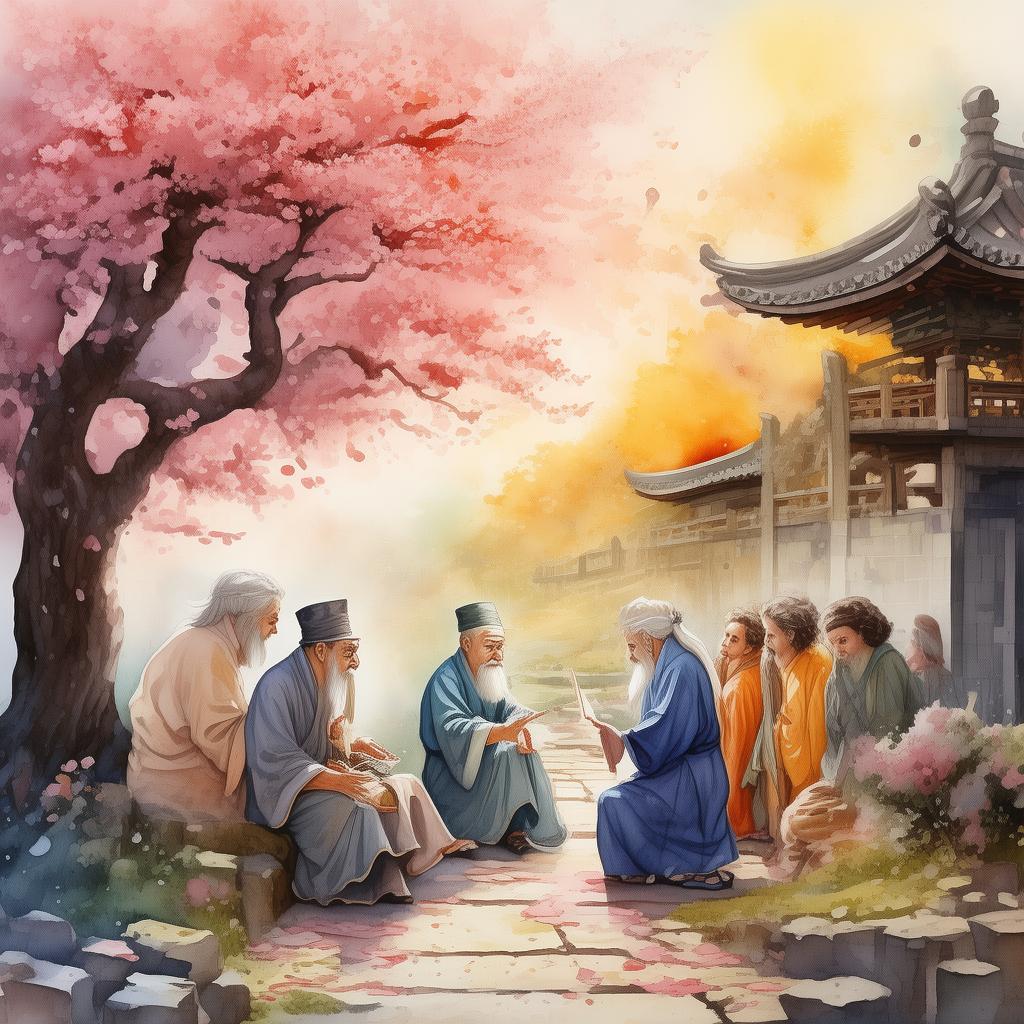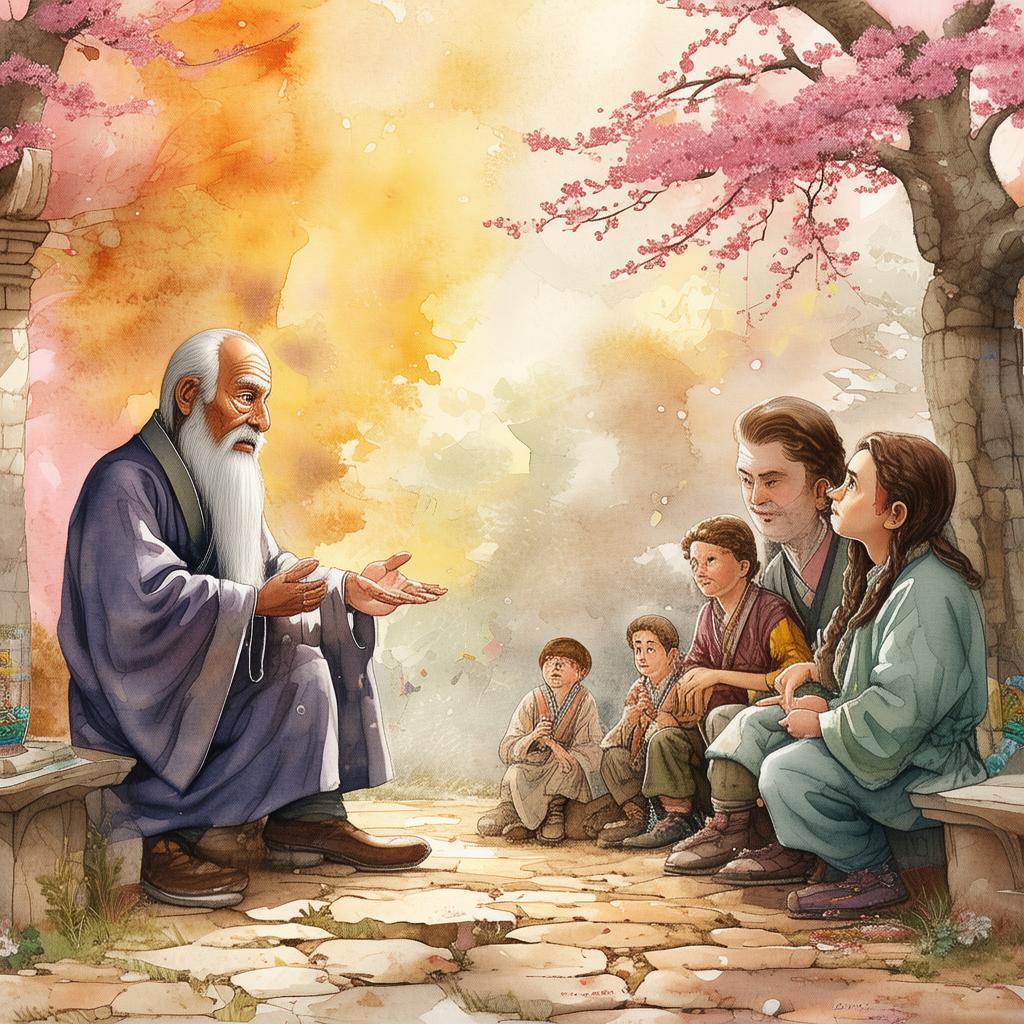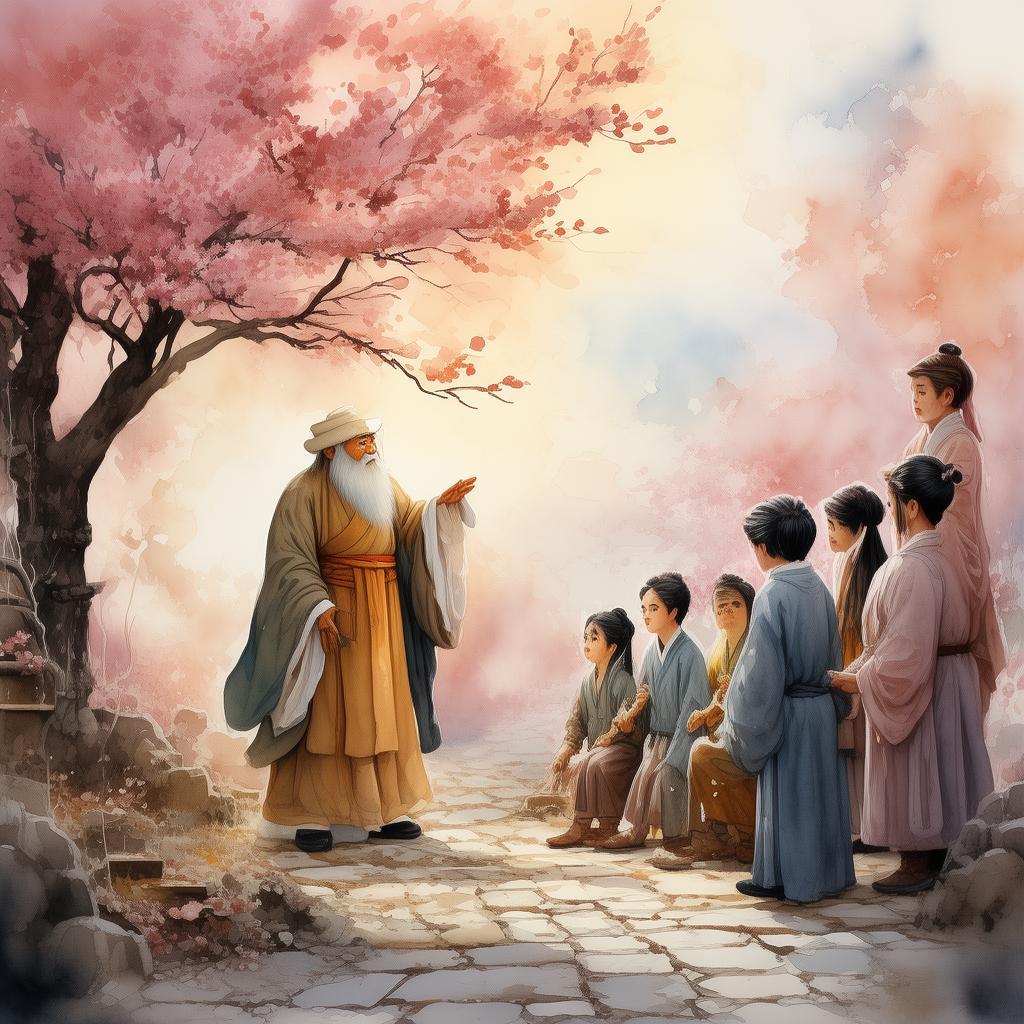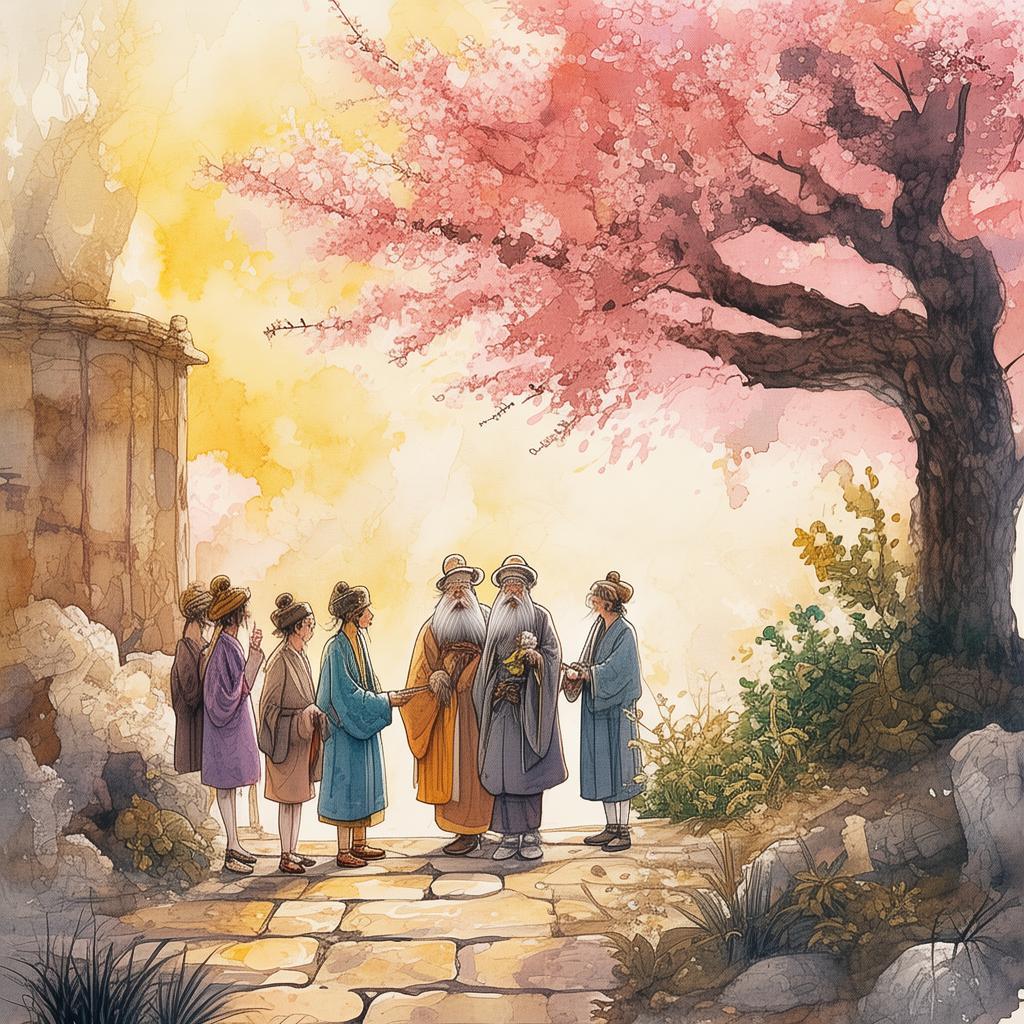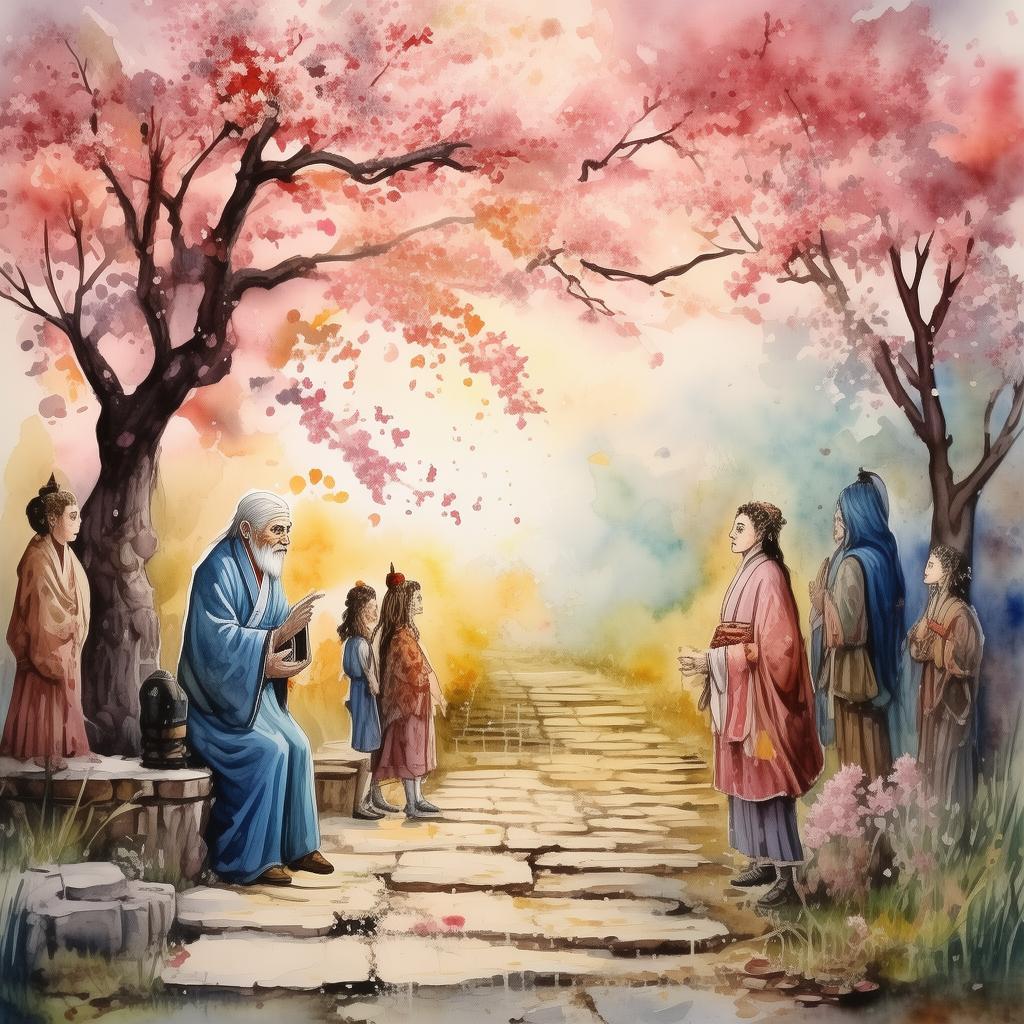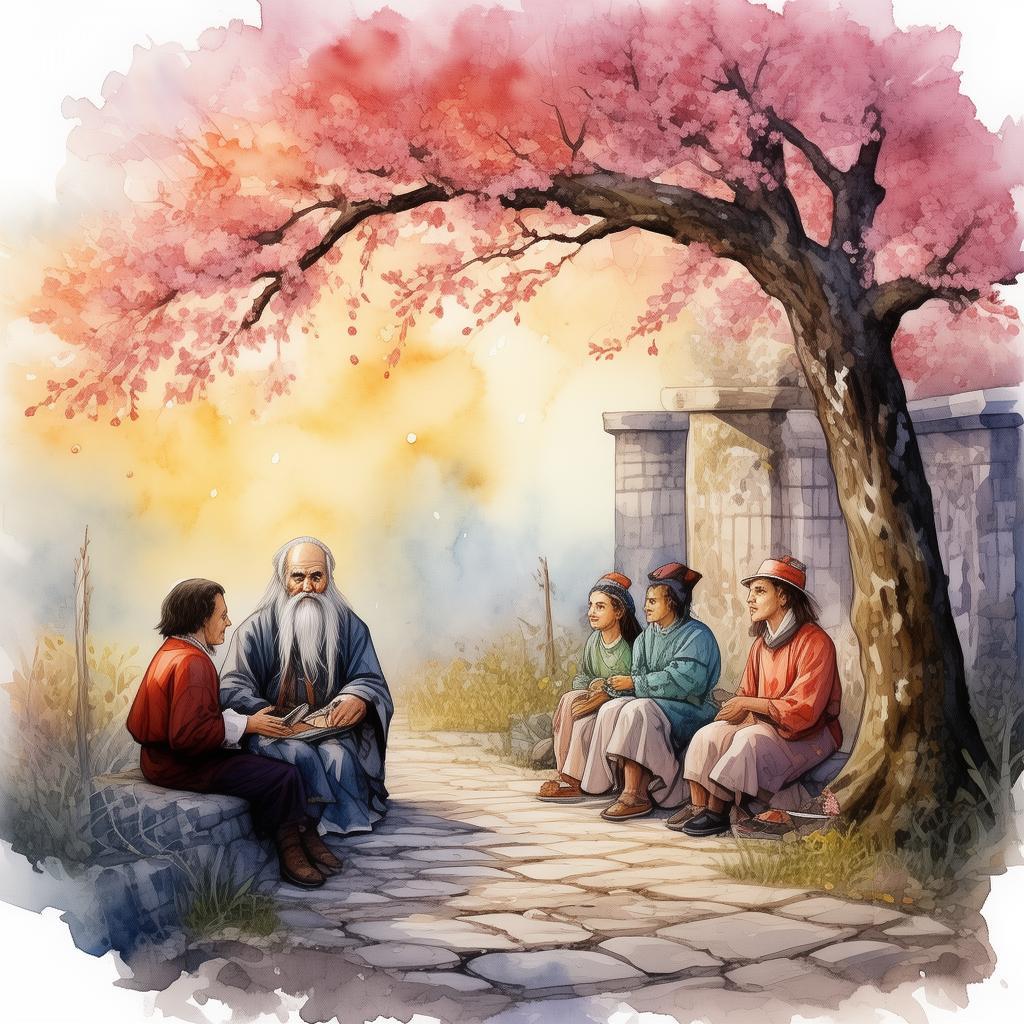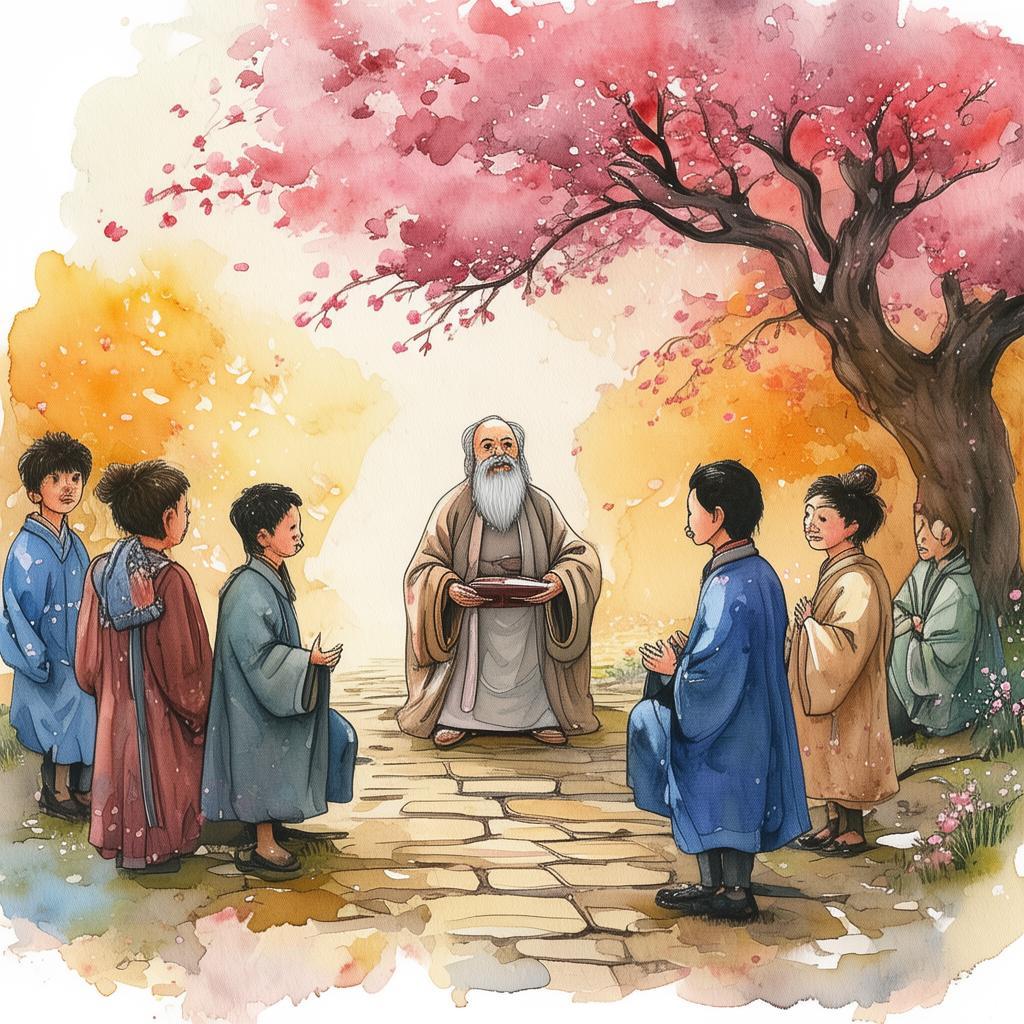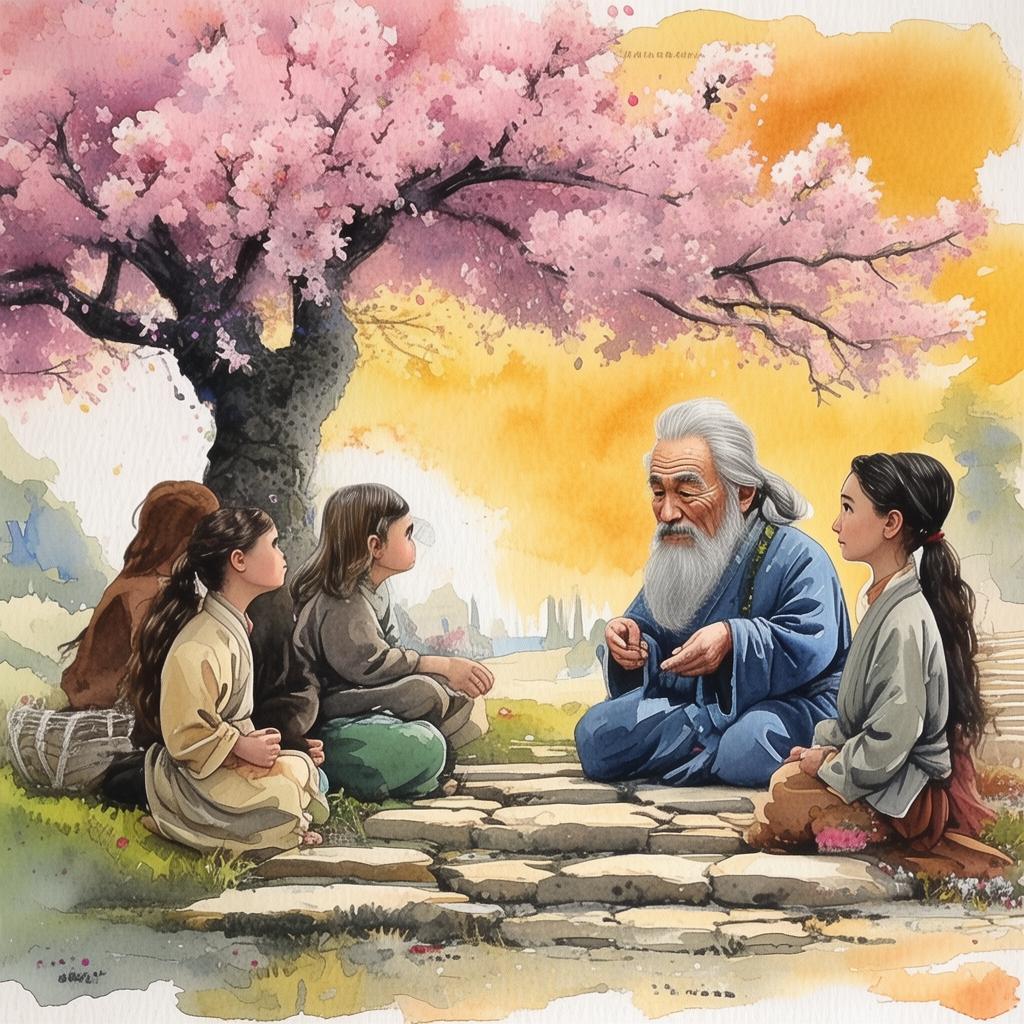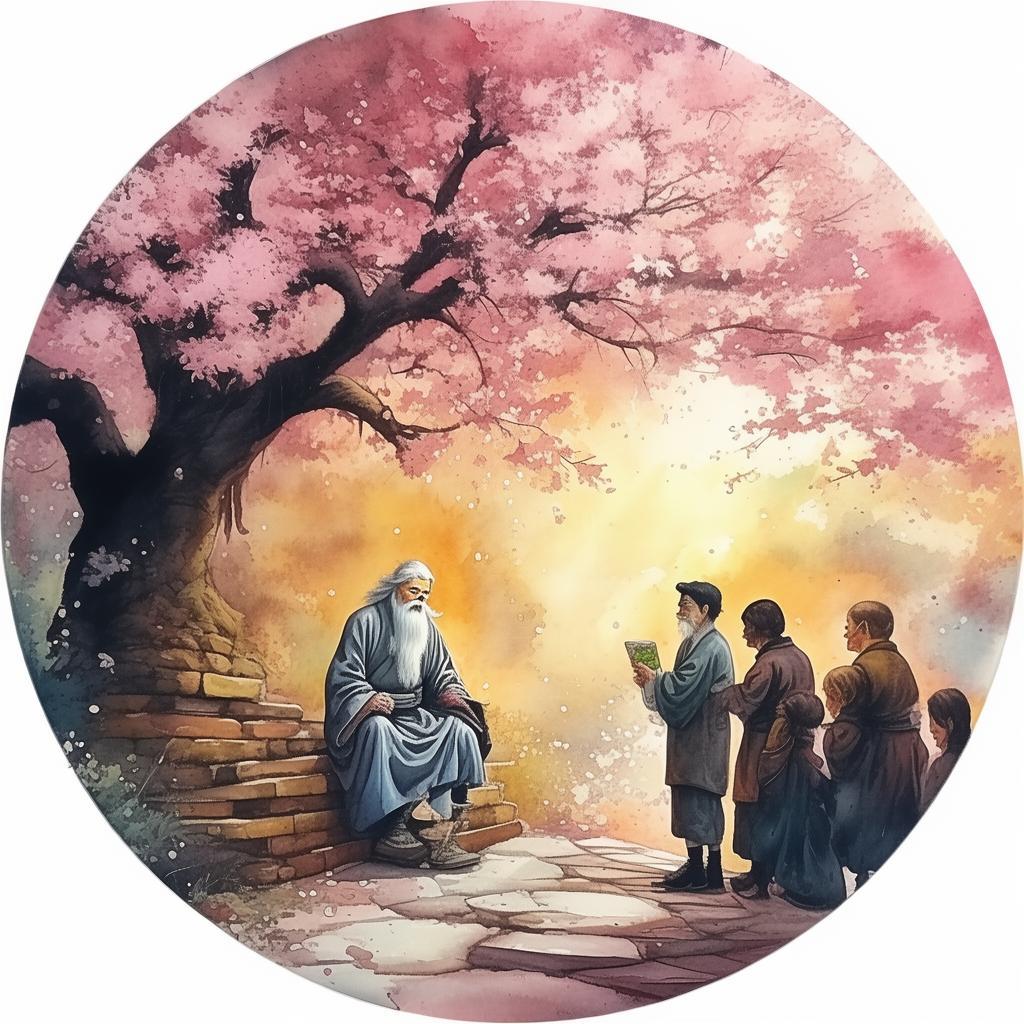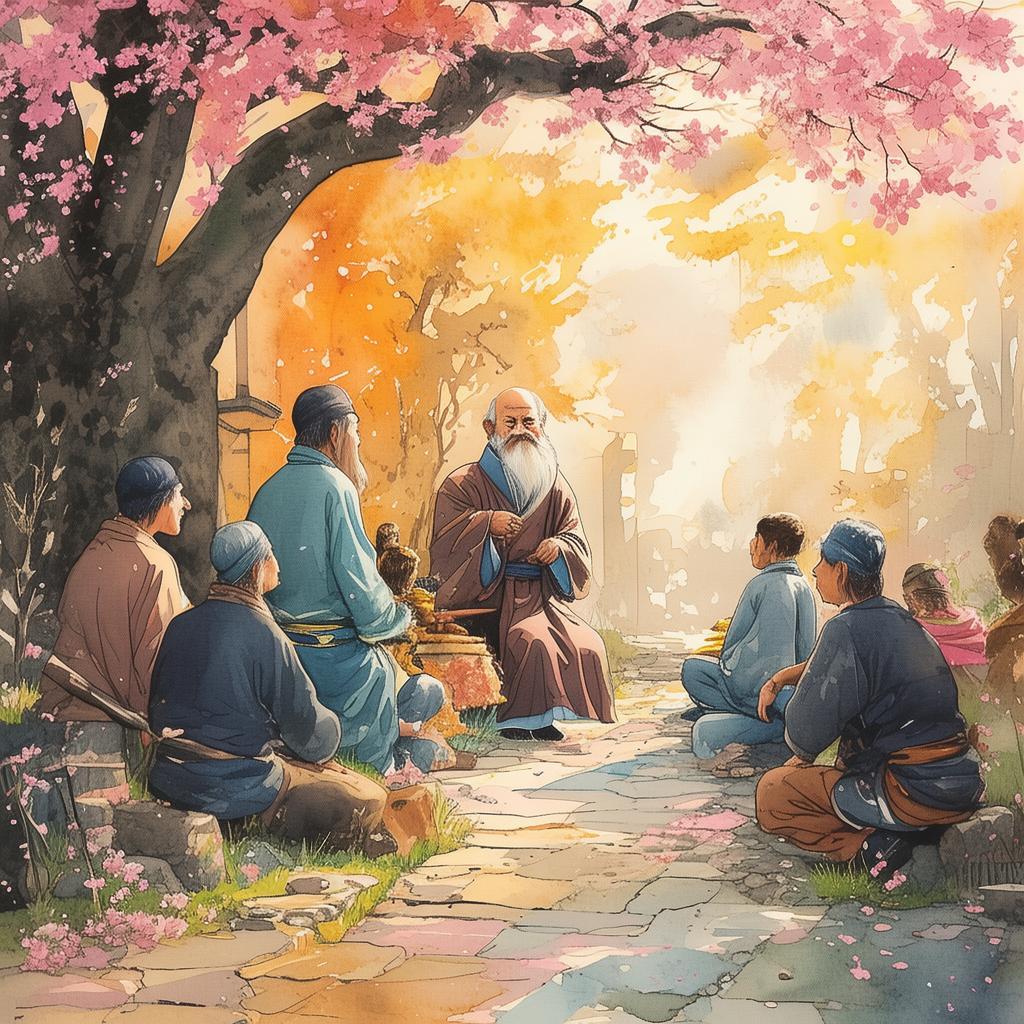The Time-Traveling Sage and the Proverbial Journey
In the heart of ancient China, where the whisper of history still lingers in the cobblestone streets of ancient cities, there lived a sage known to all as the Time-Traveling Sage. His name was Zhong. Zhong was no ordinary sage; he had the ability to traverse the ages, witnessing the rise and fall of empires, the laughter and tears of the common folk, and the wisdom of the ancient sages. Among the countless proverbs he had heard, one stood out: "A stitch in time saves nine." It was a proverb that echoed through the ages, but Zhong had always felt there was more to it than mere words.
One crisp autumn morning, Zhong found himself standing in the bustling marketplace of the Han Dynasty. The air was thick with the scent of incense and the sound of merchants haggling over the price of goods. Zhong, as he often did, sought out the old man who was said to know the deepest secrets of the past. This old man, with his long beard and piercing eyes, was the keeper of the ancient scrolls that told the tales of old.
"Old man," Zhong called out, "I seek wisdom. I seek to understand the proverb 'A stitch in time saves nine' in ways it has never been understood before."
The old man chuckled, his eyes twinkling with the light of many years of learning. "Ah, Zhong, the Time-Traveling Sage, you seek wisdom through the ages. That is a quest indeed. Follow me, and let us journey together."
With a flick of his hand, the old man conjured a shimmering portal. Zhong stepped through, and in an instant, he found himself in a bustling village, the year was 250 BCE, during the Warring States period. The scene before him was a chaotic one. A group of villagers were attempting to repair a damaged irrigation channel, their laughter and frustration mingling with the sound of splintering wood.
Zhong approached an elderly villager, who was holding a needle and thread, meticulously mending a torn cloth. "Old man," Zhong inquired, "why do you take such care to mend this cloth now?"
The villager, without looking up, replied, "A stitch in time saves nine. If I delay, the tear will grow larger and the cloth will be beyond repair."
Zhong's eyes widened. The proverb had found its roots in this moment, a simple truth that could be applied to the lives of the villagers, just as it could be applied to the lives of all who would hear it.
Next, Zhong found himself in the bustling streets of the Song Dynasty. The city was a marvel of innovation and culture. Zhong watched as a group of young artisans crafted intricate silk fabrics, their hands moving with the precision of time itself.
One of the artisans, a young woman with an eager smile, noticed Zhong observing her. "Sir," she called out, "are you also a traveler from another time? You see, the fabric we weave now will become the clothing of tomorrow. We take our time to ensure each thread is placed just right, for a stitch in time does indeed save nine."
Zhong nodded, understanding that the proverb had evolved with the times, yet its core message remained unchanged.
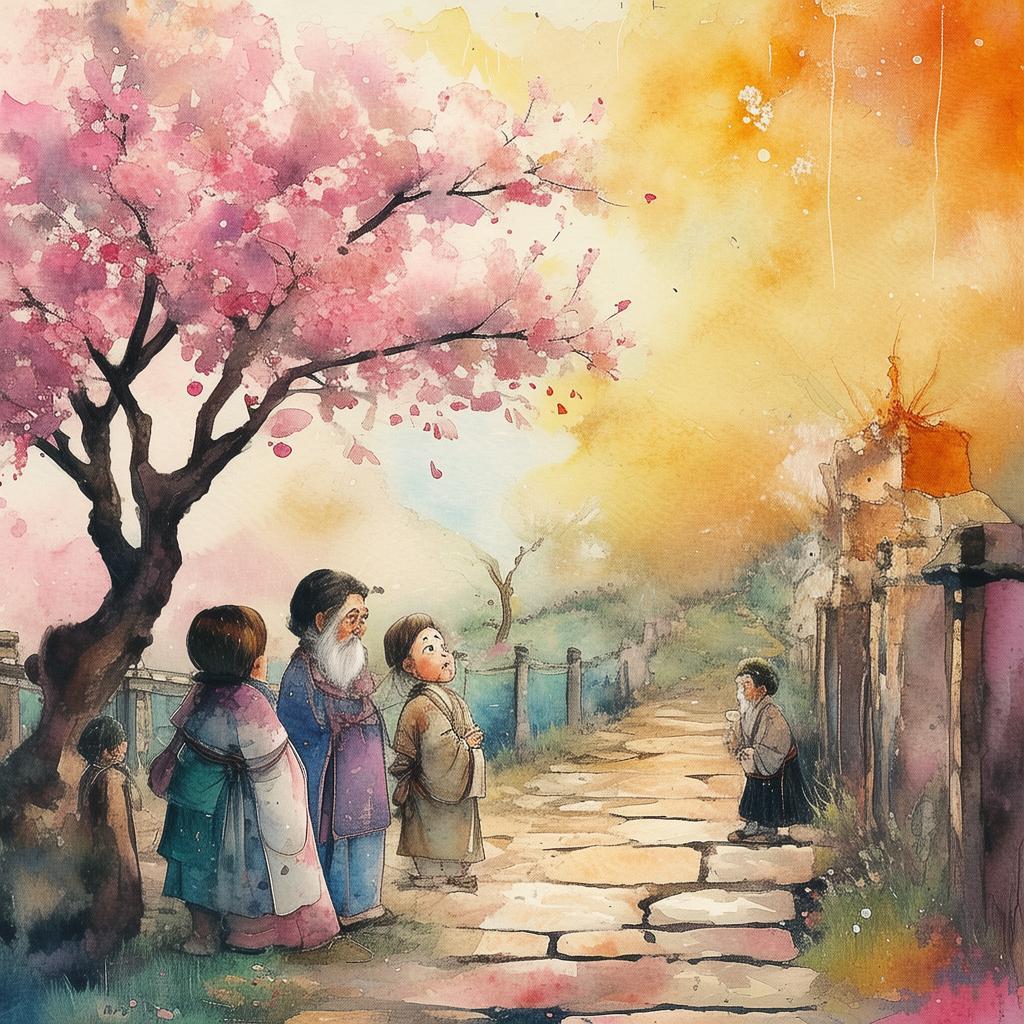
The Time-Traveling Sage continued his journey, witnessing the proverb applied in different contexts throughout history. He saw it in the hands of a medieval tailor, who mended a king's robe; he saw it in the eyes of a Renaissance artist, who carefully painted a masterpiece; and he saw it in the actions of a modern-day doctor, who performed a delicate surgery.
As Zhong stood in a futuristic city, gazing at towering skyscrapers and the bustling life below, he realized that the proverb was more than just a saying. It was a guiding principle, a testament to the value of taking immediate action to prevent future problems.
Zhong returned to his own time, carrying with him the profound understanding of the proverb. He shared his wisdom with the world, ensuring that the message of "A stitch in time saves nine" would resonate for generations to come.
In the end, Zhong, the Time-Traveling Sage, had not only uncovered the true meaning behind the proverb but had also demonstrated its timeless value. Whether it was in ancient times or the modern era, the essence of the proverb remained the same: the importance of acting promptly to avoid greater problems later on.
As Zhong reflected on his journey, he realized that the wisdom of the ages was not confined to ancient scrolls and ancient men. It was a living, breathing part of the world around him. And in understanding the proverb, he had also come to understand the true essence of wisdom itself.
✨ Original Statement ✨
All articles published on this website (including but not limited to text, images, videos, and other content) are original or authorized for reposting and are protected by relevant laws. Without the explicit written permission of this website, no individual or organization may copy, modify, repost, or use the content for commercial purposes.
If you need to quote or cooperate, please contact this site for authorization. We reserve the right to pursue legal responsibility for any unauthorized use.
Hereby declared.
